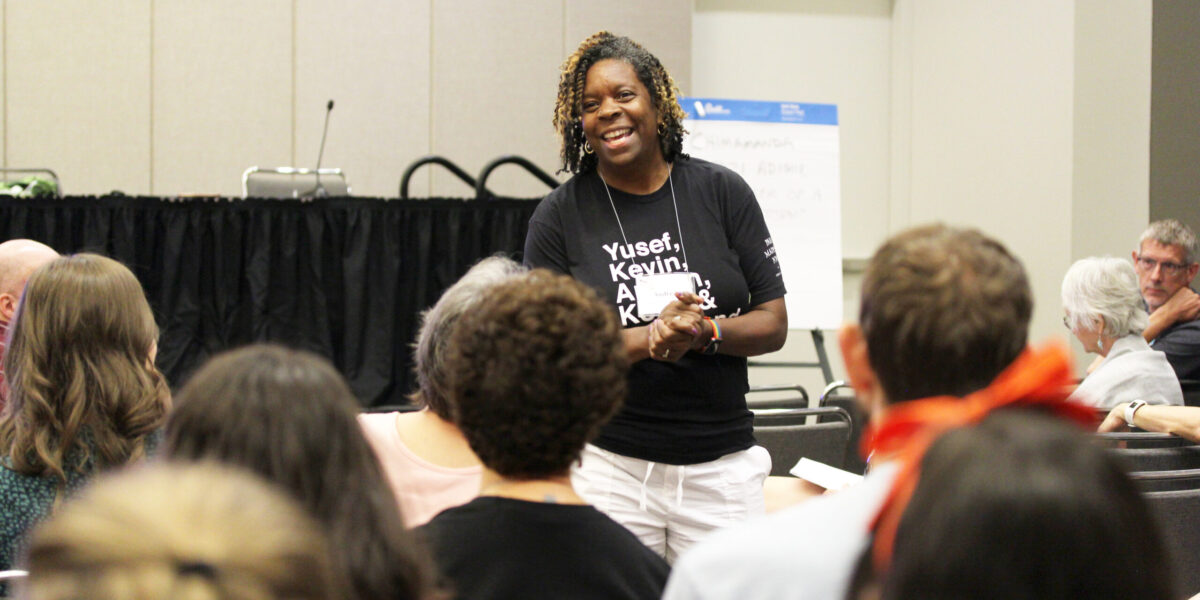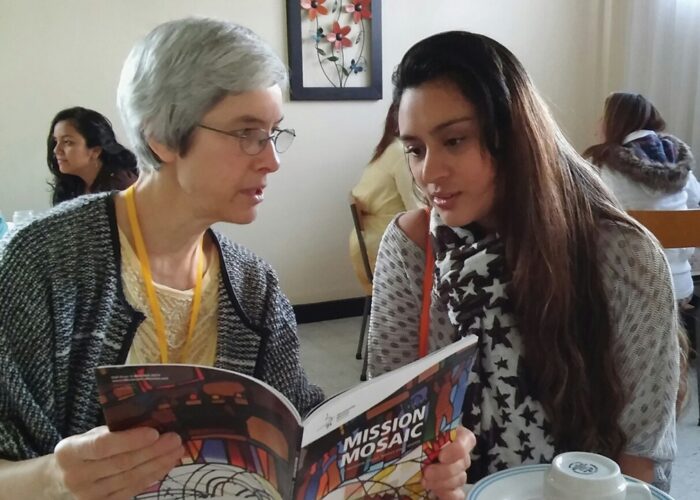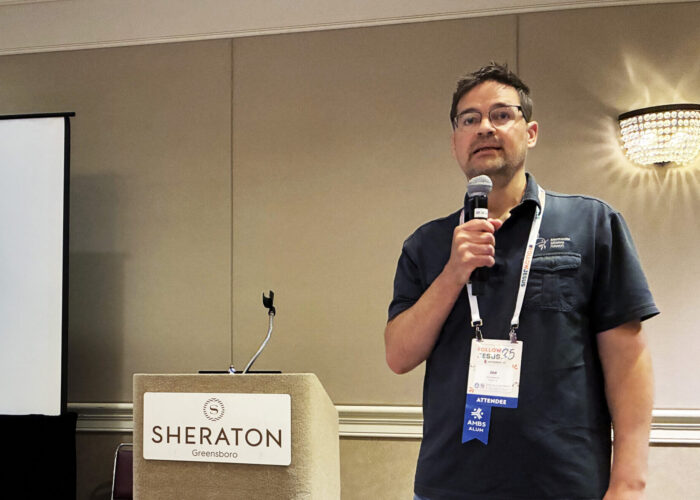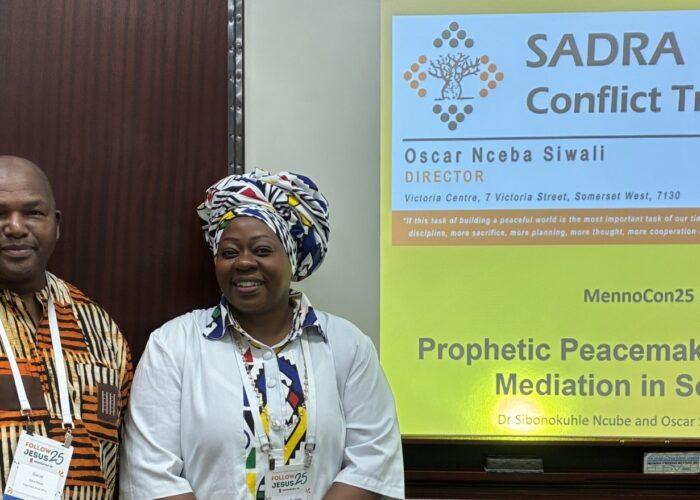NEWTON,
Kansas (Mennonite Mission Network) – When Andrea Sawyer-Kirksey talks about cultural
humility, she traces her personal journey directly to her mother. Speaking to a
group at the Mennonite Church USA convention last summer, she described that
her learning started when she was “[born] Black in America. Fortunately, the
woman who took me home was a very empowered, passionate, single mom of six
committed to justice and equality."
Sawyer-Kirksey,
executive director of DOOR (Discovering Opportunities for Outreach and
Reflection), will lead a free webinar focusing on cultural humility on Apr. 16
at 6 p. m. CDT. DOOR is a faith-based network that provides opportunities for
learning, service and leadership for youth and young adults in cities across
the United States, and is a partnership program of Mennonite Mission Network.
The
webinar, or “teach-in” as Sawyer-Kirksey describes it, will focus on how
individuals and groups can foster cultural humility through their everyday
relationships, especially in the context of service.
“In
an increasingly multicultural world, we no longer have the opportunity to avoid
each other,” said Sawyer-Kirksey. “We really have to engage in knowing one
another … and realize that we have to get this information from each
other.”
That’s
where cultural humility comes into play. To engage in knowing one another takes
compromise, patience, and a willingness to make mistakes and reveal ingrained
biases.
“My
mom used to say, ‘Your slip is showing,’” recalled Sawyer-Kirksey. “That thing
you were trying to hide, it slipped down so people can see it. I can see your
bias.”
However,
that willingness to be open and honest is a key component to practicing
cultural humility. Building mutually beneficial relationships between
people takes work from all parties. When people of different cultures come
together, Sawyer-Kirksey explained, it shouldn’t be the responsibility of the person
of color to educate the other.
“[That]
is not friendship,” she said. “It’s just another space for White people to use
the lived experience of people of color for their teaching and
education.”
Instead,
Sawyer-Kirksey suggested, cultural humility requires White
people to deal with their own racism, as well as to listen and to reflect.
“When
we don’t recognize the power we have, we can do real damage,” she cautioned.
For
more information and instructions on how to join this upcoming webinar, click here.





